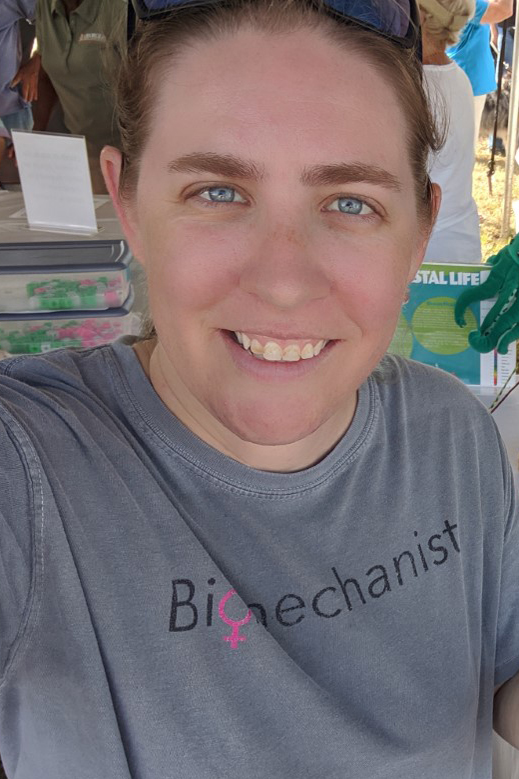Faculty Spotlight: Emily Kane

Emily Kane, PhD joined the Department of Biology at the University of Louisiana at Lafayette as an assistant professor in August 2020. She teaches physiology courses and her research lab studies biomechanics of fishes. Dr. Kane grew up near the Chesapeake Bay in Maryland and each of her major academic steps was completed in a different continental time zone - she received her BS in Marine Science from Long Island University (Eastern time) in 2006, her MS in Wildlife and Fisheries Sciences from Texas A&M University (Central time) in 2009, her PhD in Evolution, Ecology, and Organismal Biology from University of California, Riverside (Pacific time) in 2014, and received a National Science Foundation Postdoctoral Research Fellowship in Biology to complete postdoctoral work at Colorado State University (Mountain time) in 2016. Her most recent position was as an assistant professor at Georgia Southern University starting in 2017.
The Kane Lab combines approaches from physiology, biomechanics, ecology, and evolution to understand animal form and function, or how what an animal looks like affects what it can do and how it survives in its environment. A big question in the lab is understanding not only how each part of an animal functions, but how these parts work together (are integrated) to help the animal accomplish new functions. In fishes and aquatic vertebrates, successful prey capture depends on proper positioning of the mouth relative to the prey, and coordinated movement of both the body (swimming) and head (feeding) is necessary. Additionally, living in water poses physical challenges to movement that make integration among body parts especially intriguing. Recent work examines the physiological and ecological processes that shape functional integration, and how this complex trait affects survival and long-term persistence in fishes such as Trinidadian guppies and freshwater sunfish. Alongside research, the lab has also developed outreach and education projects to help local communities learn about evolution and biomechanics, and is also committed to enhancing the diversity within and inclusiveness of higher education, science, and research.
Contact Dr. Emily Kane or learn more through these links:
emily.kane@louisiana.edu
Emily Kane's lab site
Emily Kane's Google Scholar site
On Twitter @KaneLabUL
